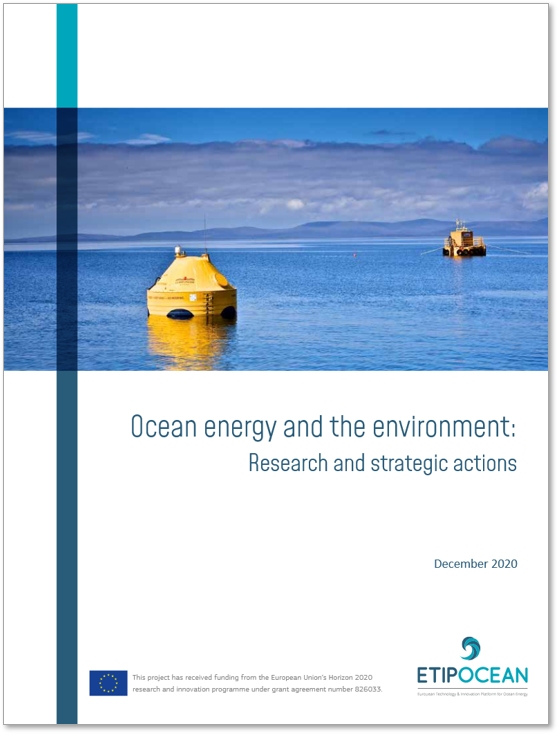This report provides a comprehensive analysis of the environmental impacts and regulatory challenges associated with ocean energy, alongside a Strategic Action Plan to support its sustainable deployment across Europe. Recognising the ocean’s critical role in climate regulation and biodiversity, it underscores the necessity of advancing ocean energy as part of the renewable energy mix, while addressing knowledge gaps and regulatory hurdles.
Key Research Needs
Ocean energy, though promising for decarbonisation, remains under-deployed, in part due to environmental uncertainties and consenting complexities. The following research areas are deemed critical:
-
Long-term, Real-world Monitoring of Environmental Impacts
Despite regulatory concerns, there is currently no evidence that ocean energy installations pose serious risks to marine ecosystems. However, uncertainties persist due to limited deployment data. Key areas needing further study include:-
Collision risks with marine animals, particularly around dynamic components of devices.
-
Underwater noise, although minimal, requires long-term monitoring for cumulative impacts.
-
Electromagnetic fields (EMFs) and their biological relevance for sensitive species.
-
Habitat alteration, both potential loss and the creation of artificial reef effects.
-
Array effects, since most studies focus on single-device deployments, whereas large-scale farms might present different ecological interactions.
-
-
Species-specific Behavioural Studies
More targeted research is needed on how different marine organisms perceive, interact with, and adapt to energy devices, especially as the industry moves towards scaled deployments. -
Cumulative and Comparative Impact Studies
Environmental effects of ocean energy must be assessed in context with other marine industries (e.g. shipping, offshore wind) to ensure a proportionate regulatory approach.
Key Strategic Actions
To enable the growth of ocean energy while safeguarding the marine environment, the report proposes four strategic actions:
-
Provide Financial Support for Environmental Research and Monitoring
Developers often lack resources for environmental research beyond legal compliance. Dedicated public funding is essential to support long-term monitoring, data sharing, and to de-risk consenting processes. This includes:-
Annual calls for environmental monitoring.
-
Incentives for data-sharing while protecting intellectual property.
-
-
Simplify and Shorten the Consenting Process
Complex and prolonged permitting procedures delay deployments. Recommendations include:-
A maximum one-year timeline for the full consenting process.
-
A three-month deadline for each permitting decision.
-
Implementation of Adaptive Management—a method where monitoring informs risk management without delaying project timelines.
-
Inclusion of ocean energy in marine spatial plans to ensure availability of appropriate deployment zones.
-
-
Create Single Points of Contact at National Level
Establishing a single authority to manage the entire consenting process will:-
Reduce administrative burden.
-
Improve coordination among multiple agencies.
-
Enable clearer guidance and timelines for developers.
-
Facilitate the dissemination of monitoring data and best practices, potentially through existing platforms like MARENDATA or Tethys.
-
-
Facilitate Knowledge-Sharing Among Developers
A dedicated, EU-supported platform should be created to:-
Allow developers to share lessons learned from consenting procedures.
-
Host documents, guidance, and forums for experience exchange.
-
Organise workshops to build capacity and awareness among emerging developers.
-
Conclusion
Ocean energy offers significant environmental and climate benefits, with minimal demonstrated risks to marine ecosystems. Yet, the sector’s progress is hindered by a lack of environmental data and fragmented consenting processes. By implementing the proposed research priorities and strategic actions, Europe can accelerate the sustainable deployment of ocean energy, strengthening its role in a low-carbon future while preserving marine ecosystems.

